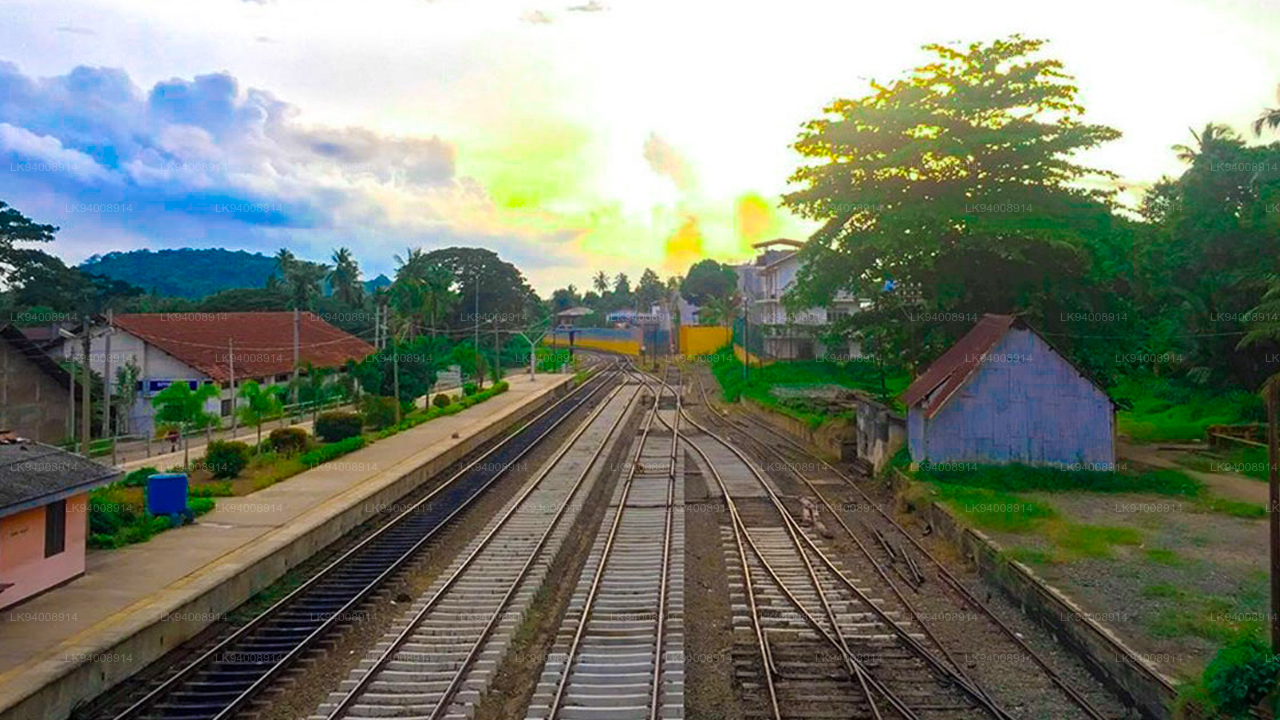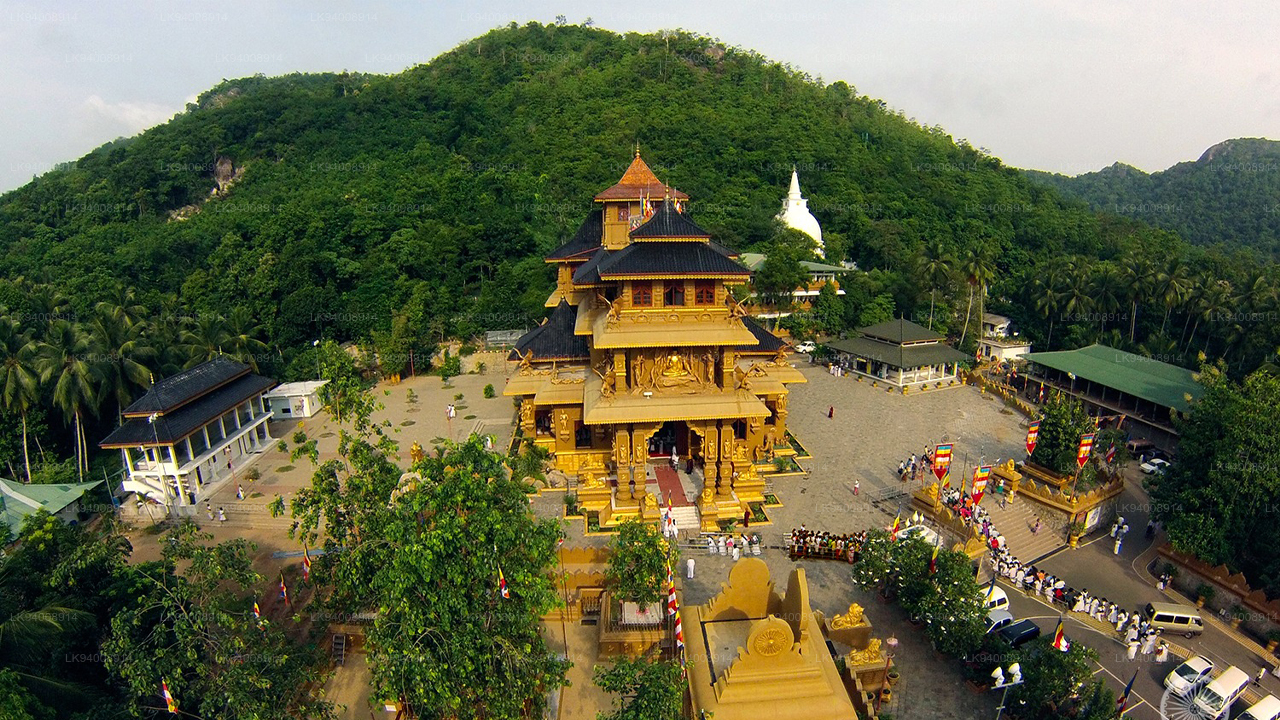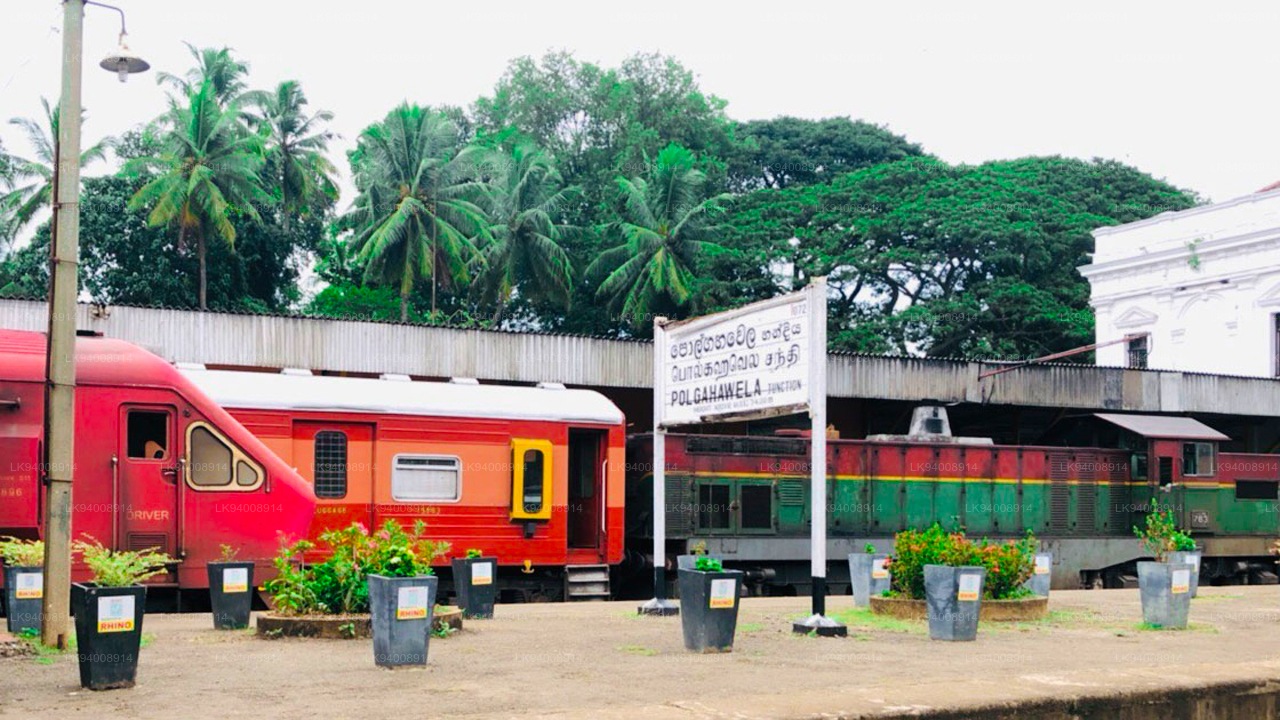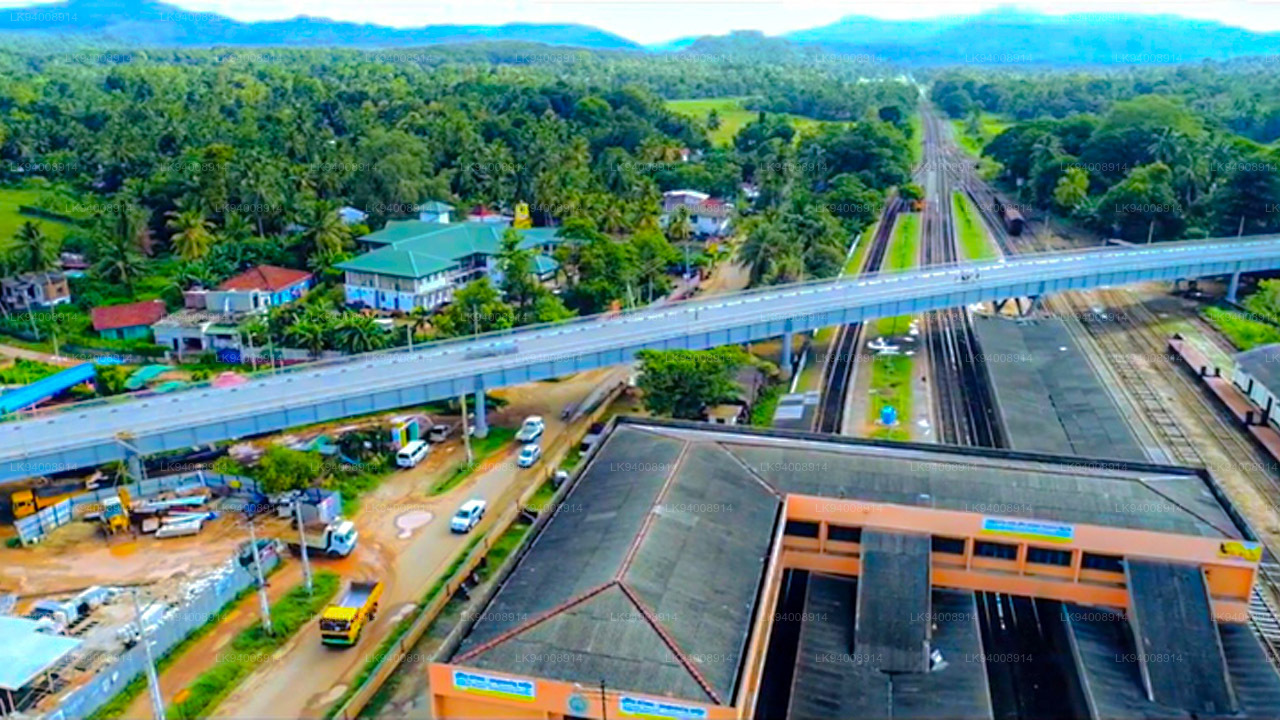
Kurunegala City
Kurunegala: Bustling city in Sri Lanka's North Western Province, featuring historic sites, vibrant markets, and a blend of modern and traditional culture.
Polgahawela
Polgahawela is a town located in north western Sri Lanka. It is most notable for being a major railway junction.
Polgahawela is situated in the North Western Province of Sri Lanka, and is located approximately 80 km (50 mi) north-east from the capital city of Colombo; 50 km (31 mi) from Kandy; 20 km (12 mi) from Kurunegala; and 65 km (40 mi) from Bandaranayake International Airport. It is the location of an important railway junction in Sri Lanka Railways' network, connecting the Main Line, which runs from Colombo to Badulla and the Northern Line, which runs through to the northern port of Kankesanthurai.
The town's significance is not limited to transportation. Polgahawela is surrounded by lush vegetation and primarily agricultural land, where rubber, coconut, and spices are the main products. The local economy heavily relies on agriculture, with many residents engaged in farming and related activities. The fertile soil and favorable climate contribute to the robust agricultural sector, which supports the livelihoods of the majority of its population.
In addition to its economic activities, Polgahawela is steeped in cultural and historical significance. The area is dotted with Buddhist temples, which are central to the spiritual and cultural lives of the community. These temples not only serve as places of worship but also as venues for local festivals and events that reinforce the strong community bonds and cultural heritage of the area.
Despite its small size, Polgahawela plays an outsized role in the connectivity and agricultural output of Sri Lanka, embodying the characteristic resilience and community spirit of the rural parts of the country. The town continues to balance modern development with traditional practices, making it a unique and important part of the Sri Lankan landscape.
【Text by Lakpura™. Images by Google, copyright(s) reserved by original authors.】
About Kurunegala District
Kurunegala is the capital of the Wayamba Province in Sri Lanka and the Kurunegala District.Kurunegala was a royal capital for only 50 years, from the end of the 13th century to the start of the next, though even before this it was strategically placed in the middle of other majestic strongholds such as Yapahuwa to the north, Dambadeniya to the south and Panduwasnuwara in the east. Ethagala a rock reaching 316 meters, towers over the town, which is located at an altitude of 116 meters above sea level. The shape of Ethagala resembles an Elephant. A transport hub, it has a railway station, and several main roads linking important parts of the country.Kurunegala is situated about 94 km from Colombo, and 42 km from Kandy.
Most of Kurunegala's residents belong to the Sinhalese majority. Other ethnic minorities include the Sri Lankan Moors, Sri Lankan Tamils, Burghers and Malays. Residents from ethnic minorities live in all parts of the city, however, sizeable communities of Moors and Tamils also live in the areas of Teliyagonna and Wilgoda.
About North Western Province
North Western Province is a province of Sri Lanka. The districts of Kurunegala and Puttalam formulate North Western or Wayamba. Its capital is Kurunegala, which has a population of 28,571. The province is known mainly for its numerous coconut plantations. Other main towns in this province are Chilaw (24,712) and Puttalam (45,661), which are both small fishing towns. The majority of the population of Wayamba province is of Sinhalese ethnicity. There is also a substantial Sri Lankan Moor minority around Puttalam and Sri Lankan Tamils in Udappu and Munneswaram. Fishing, prawn farming and rubber tree plantations are other prominent industries of the region. The province has an area of 7,888 km² and a population of 2,184,136 (2005 calculation).
Wayamba is the third largest paddy producing area in Sri Lanka .Wayamba has a highly developed agricultural economy, growing a variety of fruits and vegetables, flowering plants, spices, oil-seeds in addition to the traditional plantation crops such as Coconut, Rubber and Rice. Rich soils and varied climate give Wayamba a potential for growing of virtually any crop.
In Wayamba or North western province, home for ancient Buddhist rock temples, magnificent citadels Panduwasnuwara, Dambadeniya, Yapahuwa and Kurunegala. Impressive remains of those citadels, palaces, Buddhist temples and monasteries provide exciting sight seeing to the visitors.
【Text by Lakpura™. Images by Google, copyright(s) reserved by original authors.】













